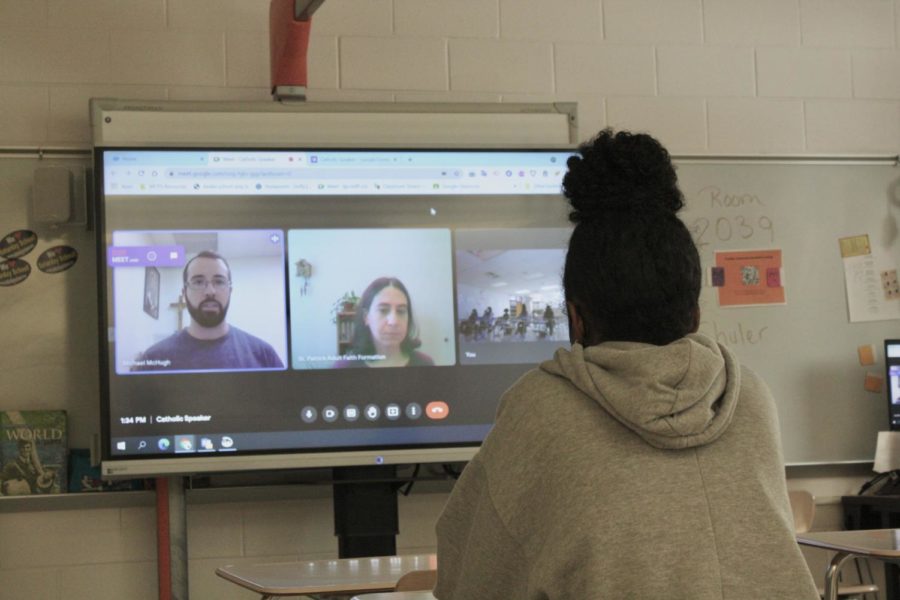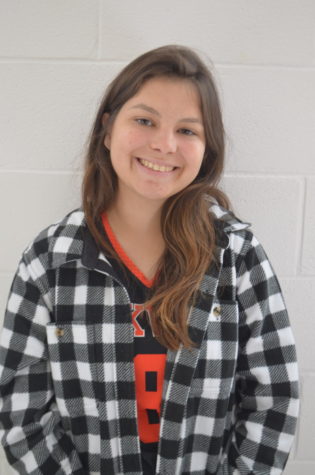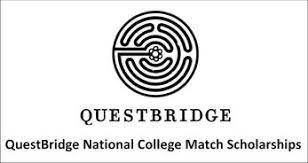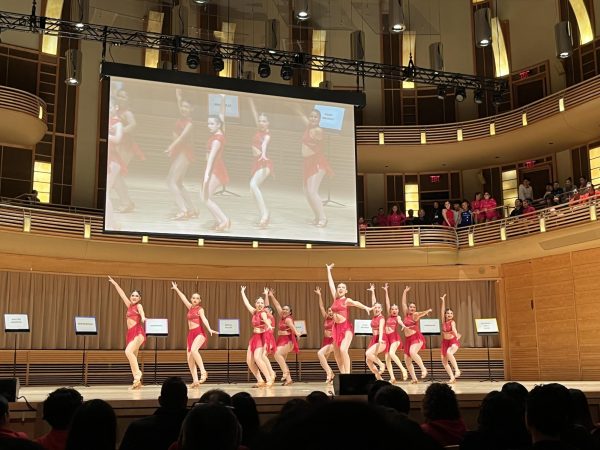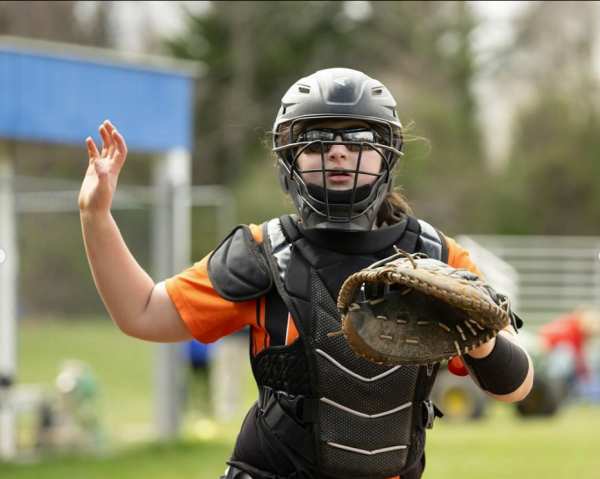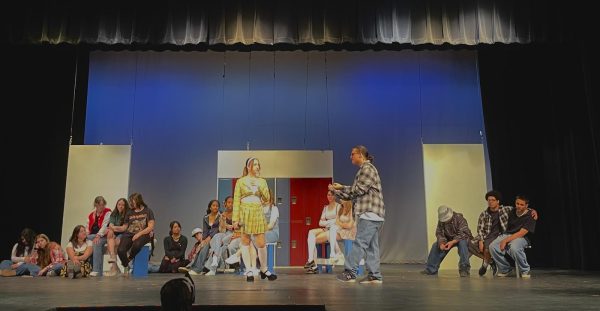Comparative Religions Returns as RHS Elective
Senior Nia Newman watches youth pastors from St. Patricks Catholic Church present on Catholicism in the new comparative religion elective class. Prior to St. Patrick’s presentation, a Buddhist Monk from Silver Spring joined Shuler’s class.
Comparative religion class has made a return to RHS as a one-semester history elective.
Taught by Rene Shuler, this course focuses on the earliest large religions of the world, Buddism, Christianity, Hinduism, Islam, and Judaism.
In addition to understanding the core values of each religion, this course welcomes guest speakers from each given religion.
Comparative religion has been offered at RHS before, but because of the low student sign-up rate, RHS has not been able to offer the elective for some time.
Shuler has been trying to encourage students to join comparative religion for a while, as Shuler has promoted this course at elective fairs in the past.
“We have tried to bring this back for years,” Shuler said.
With each religion, a speaker of that given religion is presented. For the most part, speakers’ presentations occur virtually, over Google Meet. Shuler has been reaching out to speakers, trying to get individuals to come in and present to the students. Unfortunately, that has not been the case.
“It’s been hard getting people to just even answer emails,” Shuler said.
For Hinduism, students watched a presentation with a speaker from the International Hindi Association. As for Buddism, a Buddhist Monk from Silver Spring prepared a presentation for the class. Students ask various questions about the lifestyle of being a Monk, and what lead him to become a Monk.
In addition, the class was introduced to the Jewish Community Council (JCC) and a youth pastor from St. Patrick Catholic Church. Presentations were a success, as students were engaged and eager to learn about the new cultures.
Unlike other classes, the comparative religion course is primarily student-led. After students understand the 5 core religions, it’s up to the students to drive the rest of the lessons.
For instance, in comparative religion students get to create their own religion and/or independently study the religion of their choice.
“I love that the kids get to drive what we do,” said Shuler. “Teaching should be to help the students come up with their own learning and empower them to control their learning”.
With the class being an elective, all work is completed in class and homework is rare.
“Ms.Shuler explains everything well and makes it more digestible for students to understand”, said Newman.
Shuler’s message is to embrace each religion and what they all have to offer.
“You can’t understand what other people are going through and suffering in life if you don’t really know anything except what’s in your own bubble,” said Shuler.

